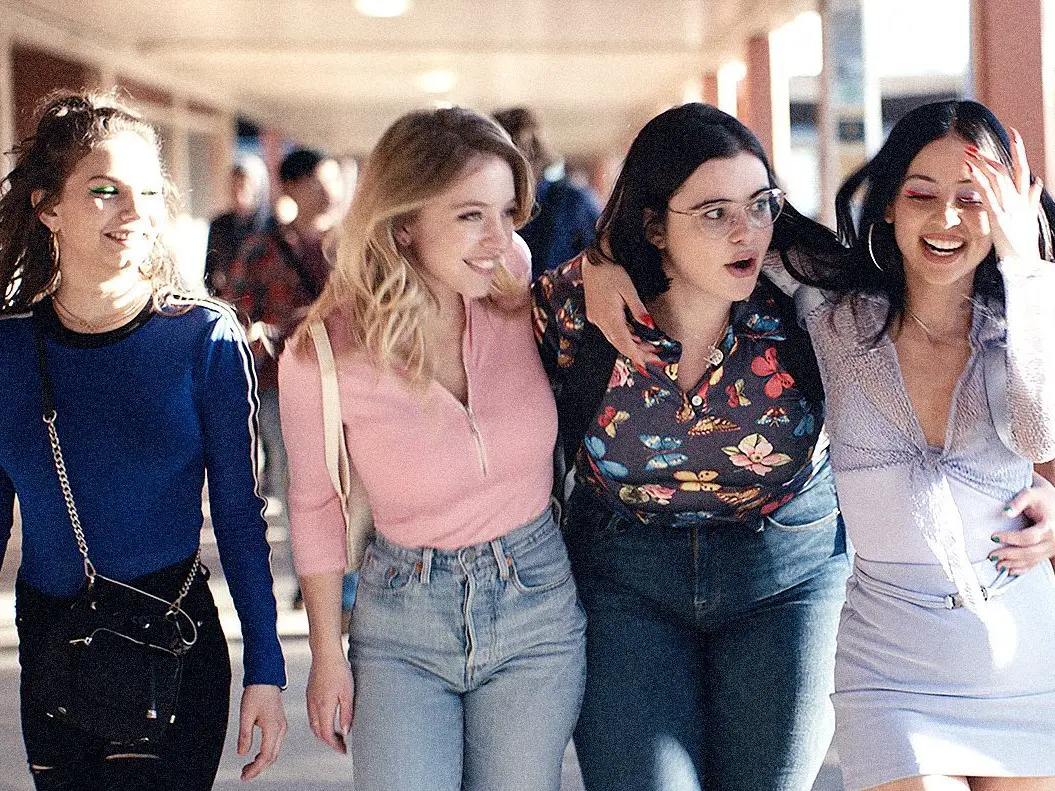There’s a new summer show on Sunday nights on HBO, and it doesn’t include family rivals fighting for a throne. “Euphoria,” HBO’s latest drama executively produced by Drake, details the life of a teenage drug addict while her high school classmates navigate struggles of their own.
With vapes and smartphones in their hands, the teens of “Euphoria” try to find clarity in their relationships, sexuality and online personas. So far, there have only been two episodes, but the show’s extreme content and subject matter capture viewers’ attention.
Fair warning: “Euphoria” is an intensely explicit show that is not for the faint of heart. (It’s HBO after all.) There’s a trigger notice before every episode and a help hotline after. Even Zendaya, the show’s lead actress, posted a disclaimer on her Instagram account the night the pilot aired.
“Just a reminder before tonight’s premiere, that ‘Euphoria’ is for mature audiences,” Zendaya said. “It’s a raw and honest portrait of addiction, anxiety and the difficulties of navigating life today. There are scenes that are graphic, hard to watch and can be triggering. Please only watch if you feel you can handle it. Do what’s best for you.”
“Euphoria” explores the life of Rue, played by Zendaya, who’s a 17-year-old trying to figure out who she wants to be after coming home from rehab. With no intentions on staying clean, Rue regularly snorts cocaine, swallows pills and smokes marijuana.
As reserved and isolated as Rue tries to be, she also has an endearing side. “Euphoria” is upfront about the loving bond that Rue has with her younger sister, Gia, who found Rue nearly choking on her vomit after overdosing in their house.
At 11, Rue had a massive panic attack. Her parents took her to the emergency room, and that’s when she first got a taste of liquid valium’s numbing effects.
“When it hit me, I thought ‘This is it. This is the feeling I have been searching for my entire life,’” Rue said.
Rue’s father, who died of cancer when she was 13, kept pain medications by his bedside, which Rue ended up using behind his back. It’s clear that Rue’s main objective in life is finding any high that’ll allow her to escape her reality. Her emotional and mental pain subsides as she spirals through dangerous hallucination trips.
Episodes 1 and 2 are filled to the brim with underage sex, drinking and smoking, and viewers eventually learn that one of the teen’s dad creates child pornography.
But after watching these dramatic episodes, I wondered how realistic these depictions are of 2019 teenagers. To say that “Euphoria” is a show about Generation Z for Generation Z is quite the stretch. Everyone’s high school experiences are different, but how many teenagers do you know who are chasing designer drugs with alcohol, partying until the sun comes out, having sex with anything that moves and losing their v-card faster than they can say “condom?”
This behavior is not entirely common among Gen Zers. When it comes to “Euphoria,” the show sometimes resembles one giant psychedelic music video. At other times, the transparency behind the traumatic events that occur go way beyond Hollywood fantasies.
Knowing that the show is loosely based on someone’s experiences changes the way one perceives its context.
If Rue’s unfortunate story seems too sad to be relatable, just ask Sam Levinson, the creator of “Euphoria.” According to Variety, Levinson spoke to a crowd in Los Angeles during the show’s premiere.
“I spent the majority of my teenage years in hospitals, rehabs and halfway houses,” Levinson said. “Sometime around the age of 16, I resigned myself to the idea that eventually drugs would kill me, and there was no reason to fight it. I would let it take me over, and I had made peace with that.”
When Levinson was 19, he checked into rehab and discovered the quote, “In the end we are nothing more than an amalgamation of our actions and that’s ultimately what defines us.” He’s been clean ever since.
Teenage drug abuse may have seemed more common during Levinson’s youth, but in today’s time, the statistics say otherwise.
According to a 2017 report from the University of Michigan’s Institute for Social Research, heroin and opioid use continue to remain low for adolescents. The use of heroin plateaued at approximately 0.4% or lower for 8th, 10th and 12th graders. Misuse of Vicodin, a prescription opioid, totaled to roughly 2% among 12th graders.
Drug use isn’t the only decline researchers found. According to the Youth Risk Behavior Survey from the Centers for Disease Control and Prevention, the percentage of high school students who have ever had sex decreased from about 48% in 2007 to nearly 40% by 2017.
Aside from the experts’ opinions, I wanted to ask a Gen Zer, so I consulted in a friend of mine. Daryl White, 19, watched the pilot. Contrary to popular belief, White said “Euphoria” was an accurate depiction of Generation Z. He also found it interesting that Rue was born just days after 9/11.
“This show is basically doing a really good job at interpreting our generation,” White said. “The show is really spot-on with our generation with just a little bit of exaggeration.”
When asked about what stands out as a decent reflection of Gen Z, White answered with “people exposing each [other], high schoolers abusing the hell out of drugs, the stereotypes and most definitely the slut shaming.”
So, is “Euphoria” really a show about Gen Zers for Gen Zers? Will it go down as a series that truly defined a generation? The answer depends on who you ask.
















